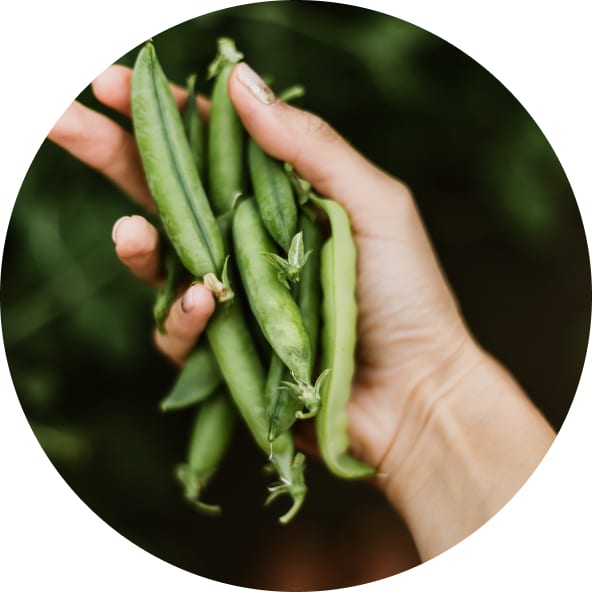We are certified to create products from raw materials that originate from organic farming. Nevertheless, we do not offer many of these types of products to the Czech market as of yet. In future, we would like to change this situation. All we need is an increase in local demand. We already deliver quality organic products in larger quantities to our international customers. The products for our international customers are mostly sold under their own brand. Unfortunately, Czech consumer demand for organic food is not yet as high as in other European countries. While the consumption of organic food in the Czech Republic is around 1.5%, it is around 5% in Germany, around 9% in neighbouring Austria, and around 10% in Denmark and Sweden. In these other European countries, products with an organic label are sought after, as people really care about what they eat, and are not indifferent to the wider environmental links to crop growing and food production. In the Czech Republic, the organic label is still on the fringes of consumer interest. From our perspective, organic should be a key feature of products, and not only something that increases the price of these foods. We see the chemicalisation of agriculture as a problem, which is why we have been active in environmental protection since the founding of Semix.
Organic food as a way to improve the health of society.
Humans are affected by a number of different chemical substances that are found not only in food and water, but also in clothing, cosmetics, etc. So far, no research has been carried out to examine how these substances cumulatively effect us. We are exposed to them en masse, rather than separately, which is how these substances are tested. Chemical substances are tested individually, and their permitted limits determined on an individual basis. Nowadays, it is not possible to completely avoid these chemicals, so we believe that it is reasonable to try to injest them as rarely as possible. Organic food production offers a way to avoid these substances in food. Most analyses show that organic dairy products and biomass have up to half the content of the omega-3 unsaturated fatty acids. Organic fruit and vegetables, when compared with non-organic, have a higher concentration of antioxidants and bioflavonoids, and a lower concentration of unwanted nitrogens, pesticides, and heavy metals. In general, we can say that the connection between chemicals in the environment and the development of allergies, nervous system disorders, or type II diabetes has been confirmed. Finally, more attention is being paid to this issue, and a few months ago the PARC project (Partnership for the Assessment of the Risks of Chemical Substances) was launched in Paris with the participation of representatives of the European Commission. 400 million Euros has been earmarked for this research. As the amount of investment suggests, the European Union sees both environmental protection and human health, with regards to the effects of toxic substances, as a high priority.
The more people buy organic, the more affordable it will become.
Organic food is generally more expensive wherever you go, but the difference in the cost of a shopping trolley with organic food versus the cost of one without is not as striking in selected countries as it is in our country. The higher price is justifiable, as cultivation and production are done in a completely different way. If we use organic meat as an example, we must take into account the numerous differences in animal husbandry. For example, conventionally raised chickens are crammed into a small area and slaughtered at six weeks of age, whereas organic chickens have a larger space with an outdoor run, organic feed, stress-free rearing, and slaughter takes place at 12 weeks of age. Organic cereals and pulses are grown in soil that must be maintained without chemical substances like pesticides that supress plant diseases, weeds, and pests. Often, consumers do not realise how many additives are found in food, from sweeteners, dyes, preservatives, antioxidants, acids, stabilisers, or emulsifiers. If I return to the question about the effect of the volume sold on the prices of products, it is one of the aspects of the higher price. Conventional products are sold in chain stores in large volumes and cannot be compared with the prices of organic products. As long as the demand for organic is small, the production of organic food will take place in smaller quantities, which will cause an increase in distribution logistics, for things like storage separate from non-organic food to prevent contamination, etc.
Are organic foods healthier?
From the point of view of chemistry, organic foods are definitely more beneficial. There is no debate. However, it is important to know that not all organic products have been created equally, and the nutritional values of the products should be monitored, i.e., do not accept excess sugar or fat. Focus on products that are high in fibre and plant-derived proteins. It is possible for organic products to be unhealthy if they contain excessive additives. The nutritional value of the food itself is also connected to chemical substances in the food that can have harmful effects on the body after certain processes like heat treatments.
The benefits of organic production methods and organic food for both human health and the environment are immeasurable. It should in the interest of state organisations that protect human health and the environment to communicate these benefits to Czech people. For now, that is not the case. That is why we decided to partner with Futurefarming, Pro BIO, and NILMORE, to communicate the benefits to more people.


